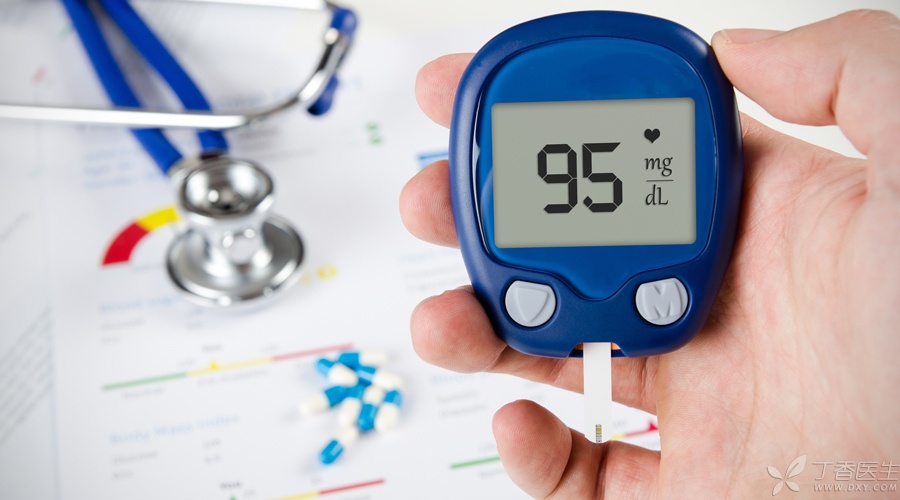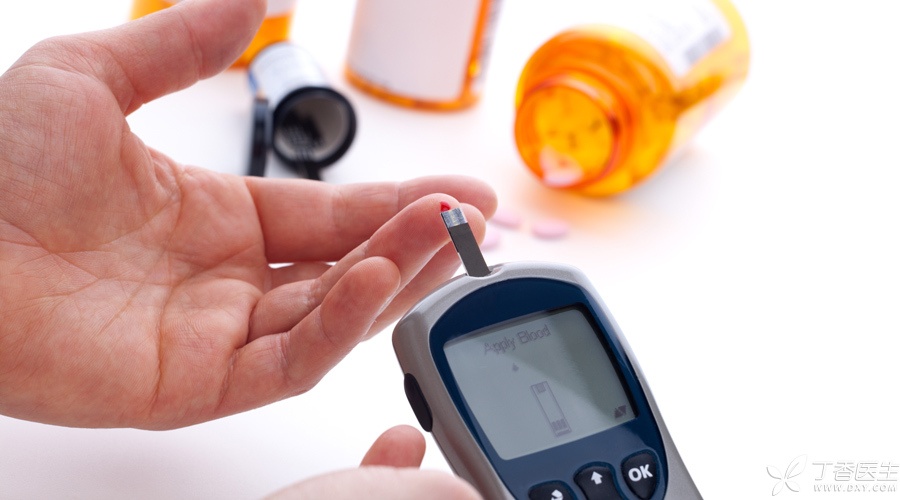
Controlling blood sugar has become a part of the life of diabetics. During the day, fasting blood sugar before breakfast is the most important.
Our fasting blood sugar here refers to the blood sugar measured by not eating breakfast in the morning, which is the basic blood sugar for the whole day. For example, a house must lay a good foundation. Whether it is well controlled or not is related to the blood sugar level for a day.
Generally speaking, fasting blood glucose measured by finger blood should be controlled at 4.4 ~ 7.0 mmol/L, and the upper limit for elderly patients can be relaxed to 8.0 ~ 9.0 mmol/L, exceeding the upper limit of this range is considered to be high fasting blood glucose.
If fasting blood sugar remains high, must the dose of hypoglycemic drugs be insufficient? Not necessarily! There may be other reasons for this.
Today, Dr. Clove told diabetics about high fasting blood sugar.
Dawn phenomenon: blood sugar is not low at night and rises in the morning,
As we all know, insulin has a hypoglycemic effect. For normal people, after falling asleep at night, insulin is continuously secreted in the body, and blood sugar gradually decreases. By 3 o’clock in the morning, blood sugar drops to the bottom.
Will hypoglycemia occur? Don’t worry, at this time, blood sugar-raising hormones (such as growth hormone, glucocorticoid, glucagon, etc.) begin to secrete from pituitary gland, adrenal gland and other organs, gradually reaching a peak, enough to maintain normal blood sugar.
For diabetics, the secretion of insulin is reduced and the hypoglycemic effect is greatly reduced. Although blood sugar can still be controlled at night, when dawn (5 ~ 9 o’clock in the morning), the hormone that raises blood sugar has the upper hand, and insulin is not their opponent at all.
The result goes without saying that fasting blood sugar will obviously rise in the morning. This is medically called “dawn phenomenon”.
When you wake up from a dream, a battle about blood sugar has begun in your body.
Sumujie effect: blood sugar is too low at night and rises in the morning,
When hypoglycemia occurs in diabetic patients, the body will activate the protection mechanism. The hormone secretion mentioned above increases, thus increasing blood sugar and causing secondary hyperglycemia. This is the [Somogyi effect].
If diabetes patients suffer from hypoglycemia at night due to various factors, this effect can increase fasting blood sugar in the morning.
It is noteworthy that patients with Sumujie effect sometimes do not have typical hypoglycemic symptoms such as palpitation and cold sweat. If they are sleeping at the same time, hypoglycemic coma is very dangerous.
Hypoglycemia at midnight is the beginning of nightmare.

What kind of situation am I?
Dawn phenomenon and Sumujie effect can both cause fasting hyperglycemia in the morning. How should diabetic patients identify themselves?
In order to reduce the impact on sleep, the blood sugar at 3 o’clock in the morning can be monitored. If conditions permit, it is better to do a 24-hour blood sugar monitoring in the hospital.
If hypoglycemia (blood sugar less than or equal to 3.9 mmol/L) occurs in the blood sugar measured in the early morning (0 ~ 4 o’clock), it means that the reason for the increase in fasting blood sugar before breakfast is Sumujie effect.
If the blood sugar is stable at night and there is no hypoglycemia, on the contrary, the blood sugar is gradually rising and the fasting blood sugar before breakfast reaches the highest point, the dawn phenomenon is the main culprit.
The two situations are handled differently.
What should I do if there is dawn phenomenon or Sumujie effect?
1. Temporary treatment that patients can do to deal with Sumujie effect
Regular diet and exercise and appropriate drug dosage are the prerequisites for solving the Sumujie effect. For diabetics themselves, we should pay attention to regular diet and exercise. Eating too little dinner or exercising too much after dinner will lead to low blood sugar before going to bed, which will lay the groundwork for the occurrence of the Sumujie effect at midnight.
Long-acting sulfonylurea drugs (such as gliclazide sustained-release tablets and glimepiride tablets), premixed insulin and medium-acting and long-acting insulin have a long action time. Diabetic patients using these drugs should pay special attention to Fansumujie effect.
Dividing meals is a good way to prevent Sumujie effect.
- For diabetic patients with high postprandial blood sugar (above 10 mmol/L) and low bedtime blood sugar, one-third of the dinner can be eaten at 9: 30 ~ 10: 00. If the blood sugar does not exceed 10 mol/L after dinner, the meal can be added directly.
It should be noted that if you adjust your diet at night, you must remember to monitor your blood sugar after dinner and before going to bed.
If the blood sugar before going to bed is lower than 6 mmol/L, the Sumujie effect may be in trouble. At this time, it is suggested to add 4 soda biscuits or 1 cup (225 ml) of milk properly. People should not worry too much about hyperglycemia caused by eating before going to bed. You know, hypoglycemia is more harmful, so we should first prevent and treat hypoglycemia.
These are only temporary treatment methods. In most cases, drugs still need to be adjusted in case of Sumujie effect. It is better for everyone to see a doctor in time and ask the doctor to deal with them.
2. Need the guidance of a doctor
To solve the Sumujie effect or dawn phenomenon, doctors not only adjust the dosage of drugs, but also may guide diabetic patients to adjust the types of oral drugs, change the injection site or dosage form of insulin, etc.
For these two cases, doctors will choose the most appropriate treatment plan according to the disease condition.
Copyright of Clove Garden. No reprinting is allowed without permission.
Source: www.hizy.net
